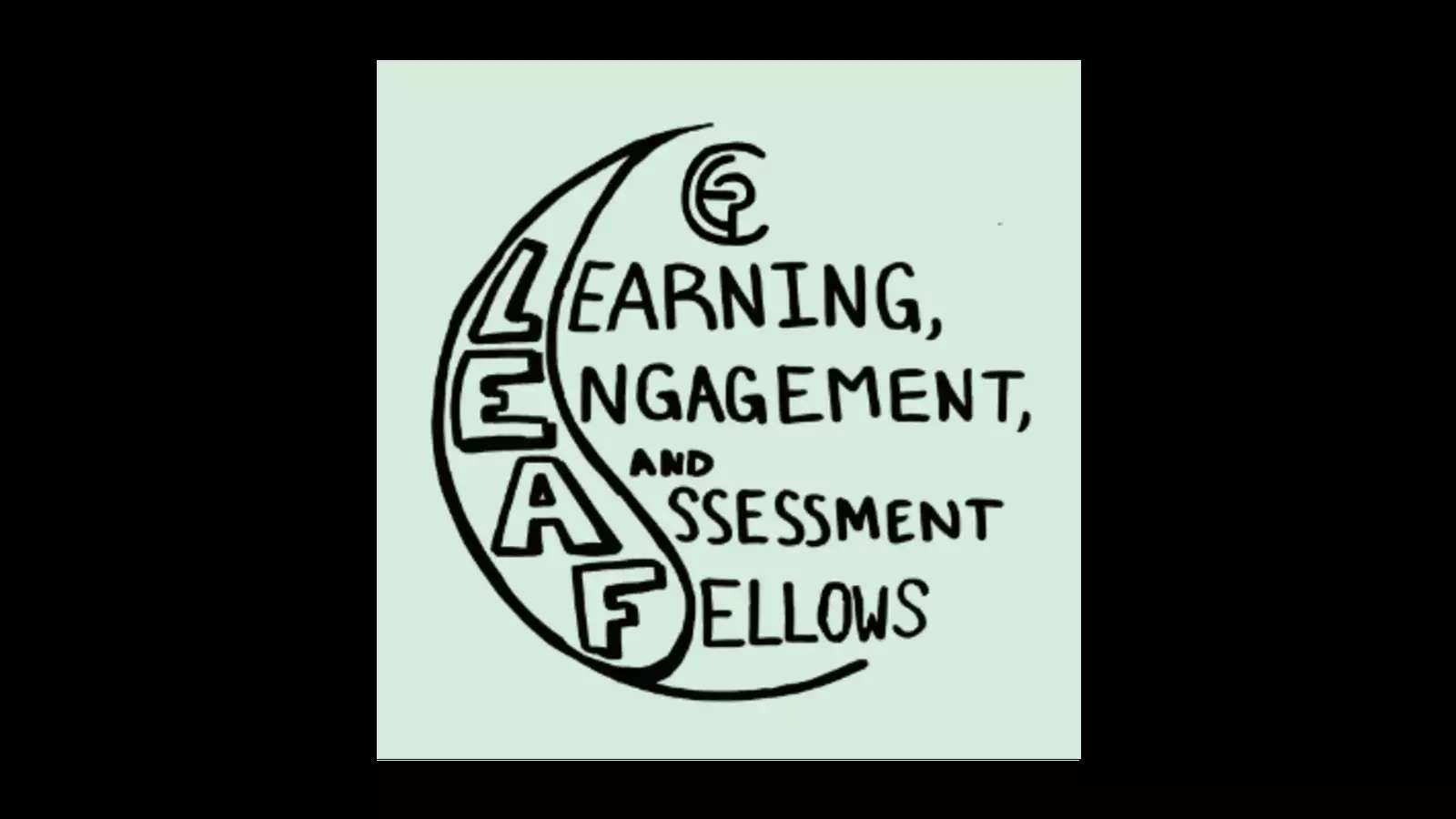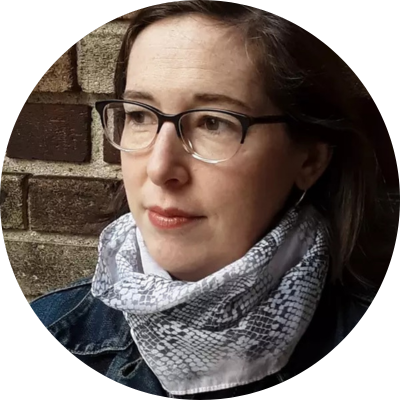Learning, Engagement, and Assessment Fellows (LEAFs)
Learning, Engagement, and Assessment Fellows (LEAFs)

Introduction
The Learning, Engagement, and Assessment Fellows (LEAFs) are Barnard students trained in student-faculty pedagogical partnership, assessment/feedback, and facilitation. The program is based on the model of pedagogical partnership, which brings students and faculty together in mutually-rewarding collaboration on faculty's teaching questions. In addition to giving instructors new insight into what is working well in their teaching, partnerships can also help students recognize their agency in shaping teaching culture.
In addition to traditional student-faculty pedagogical partnerships, where students are paired with faculty for an entire semester, the CEP also offers shorter-term partnerships with a focus on assignment or course design (e.g., assignment review, syllabus review), facilitation (e.g., consultations on facilitating complex dialogue or classroom engagement strategies), or larger departmental curriculum planning efforts (e.g., curriculum consultations, focus group support for departmental assessment).
Our fellows are excited to work with faculty from any discipline. Interested faculty and teaching staff can fill out the LEAF Instructor Form or contact leafs@barnard.edu for questions.
Consultations or collaborations
Consultations or collaborations: one-off or short-term engagement with trained fellows, with a special focus on assessment and facilitation
LEAFs can also work with instructors on a short-term basis. Possibilities include:
- Consulting on strategies for facilitating inclusive discussions and complex active learning processes (e.g., recognizing interpersonal dynamics, fostering active listening, and framing discussions), designing assignments, and/or responding to student feedback (e.g., in course evaluations)
- Collaborating with instructors in one or multiple class session(s) to offer facilitation support and feedback
- Facilitating a mid-semester feedback session and summarizing the results
- Providing feedback on course design or planning before the course is offered (e.g., over the summer, before submitting to COI)
Pedagogical partnership
Pedagogical Partnership: semester-long partnerships on course design and/or delivery between students and faculty or teaching staff
Expectations for faculty partners
- Mentor student partners and help facilitate their reflection as they explore pedagogical practices
- Participate in the program kick-off lunch meeting (date and time TBD)
- Meet with your student partner 2-4 times per month, ideally once per week
- Join an optional mid-semester faculty partner check-in lunch
- Complete a final evaluation and participate in a closing session at the end of the semester (date and time TBD)
Expectations for student partners
- Participate in the program kick-off lunch meeting (date and time TBD)
- Meet with your faculty partner once a week or at an agreed upon frequency
- Attend class and/or work together with your faculty partner on your pedagogical partnership project
- Actively participate in weekly LEAF meetings
- To prepare for LEAF meetings, complete short readings, and share your insights with the team
- Dedicate approximately 3-6 hours a week to partnership work (this includes attending class sessions and meetings with the LEAF team in the CEP)
- Complete a final evaluation and participate in a closing session at the end of the semester (date and time TBD)
Sharing our impact
Hear from a faculty partner

“LEAFs provide constructive, non-judgmental, collaborative support for any aspects of course design. In my First Year Writing course, as I developed a new theme, the LEAFs I worked with helped me troubleshoot activities, workshop handouts and materials, clarify assignment descriptions, and facilitate, synthesize, and implement student feedback. I felt more in touch with students’ perception of my teaching methods than I ever have before. The sustained relationship allowed us to build trust and a true partnership. Far from feeling like an additional burden on my time and energy, the fellows helped me to use time more effectively through dedicated weekly lesson plan review sessions, and through their enthusiasm made me excited about approaching each week of classes. I honestly don’t know how I’ve taught any classes without LEAFs. I can’t recommend them highly enough.”
- Professor Alexandra Watson
First Year Writing

“Working with a LEAF was a surprisingly gratifying experience. I thought the primary benefit of having a LEAF attached to my class would be that she would offer me the student perspective. However, I found that this student wanted to learn from my expertise as an instructor. We discussed how to craft a syllabus, how to build and manage a healthy classroom ecology, and how to handle tricky moments around the seminar table. Our weekly meetings were expansive and generative—a moment when I could reflect, along with an exceptional student, on the course I was teaching: what was going well, and how it could be improved.”
- Professor Alice Reagan
Theatre Department

“[T]he mid-semester feedback process [facilitated by LEAFs] prompted me to include an overview of the concept of neurodiversity, which not only expanded my own knowledge but also resonated strongly with students. I think that this helped create a more inclusive learning environment in the classroom.”
- Professor Luca Iemi
Neuroscience and Behavior Department
Hear from a new LEAF

“My name is Ria and I am a rising sophomore double-majoring in English and philosophy. This May, I was given the opportunity to become a Learning, Assessment, and Engagement Fellow following a strong passion for fostering equitable pedagogical practices and shaping meaningful relationships between students and faculty. In my first year, I participated in the Dialogue and Difference community of practice which taught me that facilitation is not only a tool, but a fundamental life skill that brings complex individuals together to negotiate conflicts, set goals, and build trust. When forming pedagogical partnerships, having knowledge of facilitation is essential to address the existing power dynamics between faculty and students, and center underrepresented voices in dialogue. As an incoming LEAF, I am looking forward to helping instructors incorporate equitable practices in their classrooms and work actively toward a transformative learning experience at Barnard."
- Ria Dalal
English and Philosophy Major
